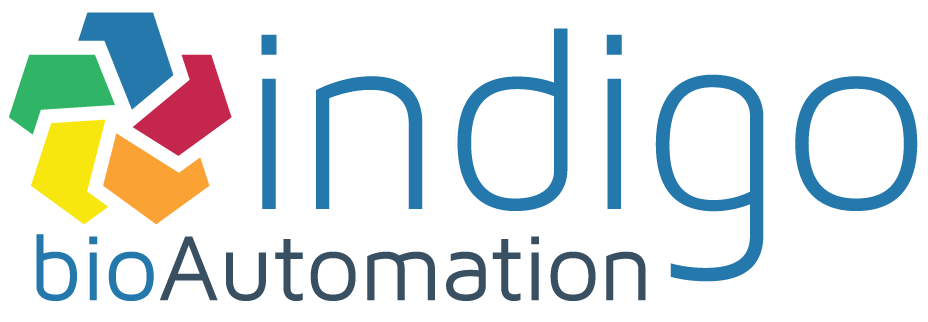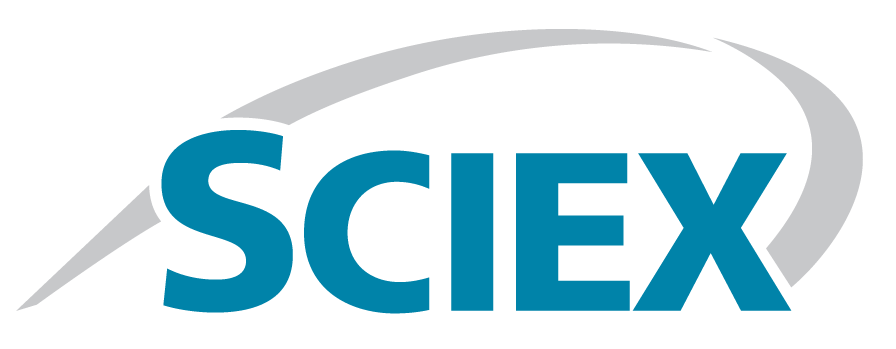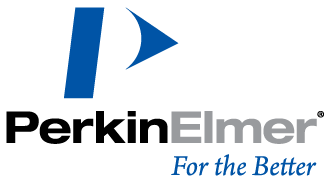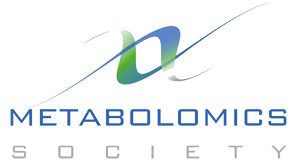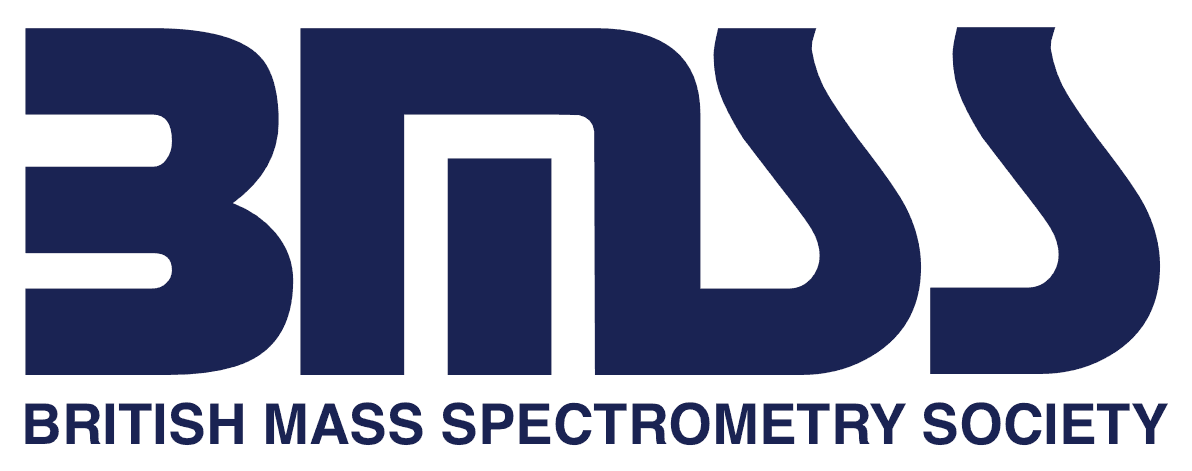MSACL 2019 USPalm Springs: Mar 31 - Apr 4 |
Details
MSACL US
|
Meet-a-Mentor
MSACL strives to offer a congress experience that values training and mentorship (see travel grants, short courses and Practical Training tracks), and provides avenues by which early-career attendees can gain experience presenting (see Poster Lightning Talks, the Poster Contest, Podium opportunities).
The Meet-a-Mentor program has been developed to create a channel by which early-career attendees can approach, interact and connect with mid- to late-career attendees to share intellect and experience.
Booth and Poster Tours: Mentors browse booths or view posters as they normally do, but with one or more mentees along to observe, participate and learn from experience.
Office Hours: Mentors will be available at tables in the Meet-a-Mentor area of the Exhibit Hall where attendees can sign up to have a 10-15 minute chat about ... anything.
You can sign up at the congress to participate in one or more Meet-a-Mentor activities (i.e., Booth Tour, Poster Tour, Office Hours).
| Tuesday | 18:15 - 19:00 | Meet-a-Mentor: Booth Tours Exhibit Hall in Oasis 3-4 |
| Wednesday | 14:15 - 15:00 | Meet-a-Mentor: Poster Tours 1 Exhibit Hall in Oasis 3-4 |
| Wednesday | 16:15 - 17:15 | Meet-a-Mentor: Office Hours Exhibit Hall in Oasis 3-4 |
| Thursday | 10:15 - 11:00 | Meet-a-Mentor: Poster Tours 2 Exhibit Hall in Oasis 3-4 |
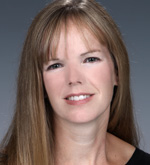
|
Erin Baker, PhD |
Poster Judging on See Details @ See Details Office Hours 1 on Wednesday @ 16:15
|
|
| Dr. Erin Baker is a bioanalytical chemist with more than 20 years experience utilizing ion mobility spectrometry in conjunction with mass spectrometry (IMS-MS) to study environmental and biological systems. In the last 14 years she has worked primarily on IMS-MS applications in the field of proteomics and more recently she has optimized IMS-MS metabolomic, glycomic and lipidomic separations. Her research involves the development and evaluation of high throughput IMS-MS, SPE-IMS-MS and LC-IMS-MS analyses to quickly study numerous samples in a short time period without losing valuable biological information, as well as assessing the number and quality of features detected with IMS-MS for comparison with existing MS platforms. Dr. Baker is also working with informatics teams to design and implement software tools that automatically analyze the complex multidimensional SPE-IMS-MS and LC-IMS-MS data. | |||
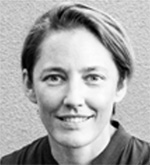
|
Anne Bendt, PhD (Biochem) |
Office Hours 1 on Wednesday @ 16:15
|
|
| With a MSc in Marine Biotechnology (Greifswald University, Germany) and a PhD in Biochemistry (Cologne University, Germany) in close collaboration with industry, Anne Bendt has always been working on topics which are translatable into applications outside of the laboratory. Driven by her fascination for infectious diseases, she joined the National University of Singapore (NUS) in 2004 to develop lipidomics tools for tuberculosis studies. She is now a Principal Investigator at the Life Sciences Institute, NUS, focussing on translation of mass spec technologies into clinical applications, primarily for lipids and small molecules. Additionally, she is serving as the Associate Director of the Singapore Lipidomics Incubator (SLING) being in charge of operations and commercialization. Anne is passionate about training and education and has made substantial contributions to SLING’s various workshops and the highly successful ‘ic lipid’ training course. She is a co-founder of FeMS, the international 'Females in Mass Spec' initiative. | |||
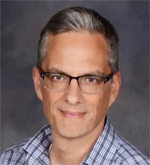
|
Cory Bystrom, PhD |
Poster Judging on See Details @ See Details Office Hours 1 on Wednesday @ 16:15
|
|
| Dr. Cory Bystrom serves as Director of Research and Development at Cleveland HeartLab where he is responsible for novel biomarker identification, validation and commercialization with an emphasis on quantitative biological mass spectrometry. Dr. Bystrom has over a decade of experience as a laboratory leader and chemist. Prior to joining CHL, he was at Quest Diagnostics Nichols Institute as associate director of research and development with responsibilities for development of tests and identification of analytical strategies for commercialization of new biomarkers. He also has held research and development roles at Oregon Health Science University, Fonterra, and Pharmacia and Upjohn. | |||
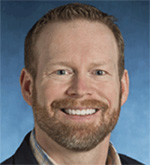
|
William Clarke, PhD |
Booth Tours on Tuesday @ 18:00 Office Hours 1 on Wednesday @ 16:15
|
|
|
Dr. William Clarke is a professor of pathology at the Johns Hopkins University School of Medicine. His research focuses on the development of analytical methods for drug analysis, clinical mass spectrometry, and devices for point-of-care testing. Dr. Clarke serves as the director of Clinical Toxicology as well as Critical and Point-of-Care Testing Program at The Johns Hopkins Hospital. His team’s current projects include qualitative screening for antiretroviral drugs and substances of abuse in various HIV- prevention clinical trials, development and validation of mass spectrometry methods for clinical analysis, and development of clinical assays for use on microfluidic platforms. Dr. Clarke received his B.S. in Chemistry from the University of Nebraska at Kearney and his Ph.D. in Analytical Chemistry from the University of Nebraska-Lincoln, as well as an M.B.A. from the Carey School of Business at Johns Hopkins University. He completed a post-doctoral fellowship in Clinical Chemistry at the Johns Hopkins School of Medicine. |
|||
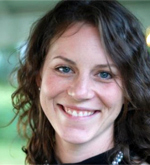
|
Jennifer Colby, PhD |
Poster Judging on See Details @ See Details
|
|
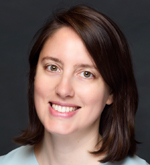
|
Mari DeMarco, PhD |
Poster Judging on See Details @ See Details Office Hours 1 on Wednesday @ 16:15
|
|
| Mari DeMarco is a clinical chemist at St Paul's Hospital, and a clinical associate professor in the Department of Pathology and Laboratory Medicine at the University of British Columbia in Vancouver Canada. Her research lab develops strategies for streamlined sample preparation workflows for both qualitative and quantitative mass spectrometric analysis of peptide and protein biomarkers. In addition, a major focus of her laboratory is the development biofluid tests for Alzheimer’s disease and related neurodegenerative disorders, and their application to clinical research and patient care. | |||
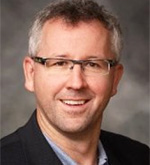
|
Rob DeWitte, PhD |
Office Hours 1 on Wednesday @ 16:15
|
|
|
Rob is a scientist who has evolved into a business leader over the course of his career. He has a PhD in theoretical Chemical Physics (Harvard University), but has managed to follow his interests into Pharma R&D (startup & Big Pharma), technologies for drug discovery, platforms for clinical diagnostics (including Cascadion). Most recently, Rob has co-founded Elarex to stabilize vaccines & biologics. Along the way he has been involved in, or responsible for, R&D, Marketing, Strategy, Business Development, QARA, Manufacturing, Finance, HR and General Management. Rob also supports young life science companies with strategic advice and access to financing. Join Rob in his office hour if you’d like to talk about alternative careers. There are a lot of different paths that lead to interesting opportunities! |
|||
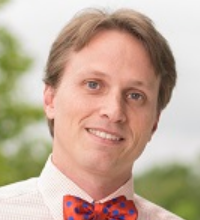
|
Timothy Garrett, PhD |
Poster Judging on See Details @ See Details
|
|
| Dr. Garrett has over 20 years of experience in the field of mass spectrometry spanning both instrument and application development. He received his PhD from the University of Florida, under Dr. Richard A. Yost, working on the first imaging mass spectrometry-based ion trap instrument. He has also developed MALDI-based approaches to analyze proteins in bacteria and small molecules in tissue specimens. His current interests include the translation of LC-HRMS, MALDI, DESI and LMJSSP in metabolomics to clinical diagnostics. He is an Associate Professor in the Department of Pathology at the University of Florida, and an Associate Director for the Southeast Center for Integrated Metabolomics (SECIM). | |||
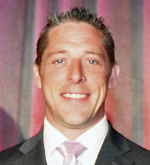
|
Russ Grant, PhD |
Poster Judging on See Details @ See Details Poster Tours 1 on Wednesday @ 14:15
|
|
|
Russell Grant, PhD received his PhD in chromatographic and mass spectrometric technologies from Swansea University in 1995. He continued his scientific training in various industrial settings which have included: Senior scientist at GSK, Principal scientist at Cohesive Technologies, Technical Director at Eli Lilly and Director of Mass Spectrometry at Esoterix Endocrinology. Dr. Grant has pioneered the use of direct injection technologies, chromatographic systems multiplexing, utility of automation and new analytical platforms for utility in bioanalytical applications. Dr Grant has extensive experience in developing, validating and launching clinical tests using Mass Spectrometry. Dr Grant is regarded as an expert in many facets of the clinical mass spectrometry discipline. His contributions including a significant degree of teaching (MSACL, ASMS, AACC, FDA), chairing usergroups and workshops (ASMS, MSACL) and contributing heavily or chairing guidance documents (FDA, CLSI). His research goals are focused upon improvements in automation, systems integration, throughput, sensitivity and quality of LC-MS/MS analytical systems for all clinically relevant biomarkers and therapeutics. |
|||
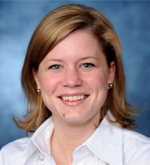
|
Shannon Haymond, PhD |
Poster Judging on See Details @ See Details Office Hours 1 on Wednesday @ 16:15
|
|
|
Hi! I am Dr. Shannon Haymond, the Director of Mass Spectrometry and the Vice Chair for Computational Pathology at Ann & Robert H. Lurie Children?s Hospital of Chicago. I am an Associate Professor of Pathology at Northwestern University Feinberg School of Medicine. My current interests include automating data workflows in mass spectrometry labs and improving the capacity and application of data analytics within laboratory medicine. That said, I especially enjoy meeting early career colleagues and am happy to share my experiences on a broad array of topics. |
|||
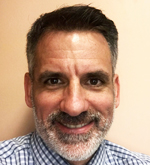
|
Daniel Holmes, MD |
Poster Tours 2 on Thursday @ 10:15
|
|
| Daniel Holmes earned his undergraduate degree in Chemical Physics from the University of Toronto. He went to medical school at the University of British Columbia (UBC) where he also did his residency in Medical Biochemistry. He is a Clinical Professor of Pathology and Laboratory Medicine at UBC and Division Head of Clinical Chemistry at St. Paul's Hospital in Vancouver. Interests include laboratory medicine informatics – particularly using the R language, clinical endocrinology with a focus on secondary hypertension, clinical lipidology and clinical mass spectrometry. Assay development efforts in the last five years have focused on novel use of mass spectrometry for quantitative protein mass spectrometry and for specialized endocrine testing. | |||
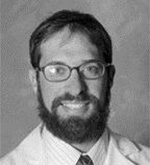
|
Andy Hoofnagle, MD, PhD |
Poster Judging on See Details @ See Details
|
|
| Dr. Hoofnagle’s laboratory focuses on the precise quantification of recognized protein biomarkers in human plasma using LC-MRM/MS. In addition, they have worked to develop novel assays for the quantification of small molecules in clinical and research settings. He also likes to hike, ski, cook, and find a small corner in the room in which to nibble pieces of bacon. | |||
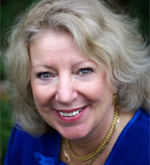
|
Marilyn Huestis, PhD |
Poster Judging on See Details @ See Details Office Hours 1 on Wednesday @ 16:15
|
|
| Professor Dr. Dr. (h.c.) Marilyn A. Huestis recently retired as a tenured senior investigator and Chief, Chemistry and Drug Metabolism Section, IRP, National Institute on Drug Abuse, National Institutes of Health, after 23 years of conducting controlled drug administration studies. She currently is a Senior Fellow and a member of the Steering Committee of The Lambert Center for the Study of Medicinal Cannabis and Hemp, Thomas Jefferson Medical School, Philadelphia, PA, Science and Policy Advisor, Pinney Associates, Bethesda, MD, on the Smart Approaches to Marijuana (SAM) Science Advisory Board, Senior Scientific Advisor of NMS Labs, Consultant to the US Department of Transportation, a Fellow at the Center for Forensic Science Research & Education, Willow Grove, PA and President of Huestis & Smith Toxicology, LLC. Her research program focused on discovering mechanisms of action of cannabinoid agonists and antagonists, effects of in utero drug exposure, oral fluid testing, driving under the influence of drugs, and the neurobiology and pharmacokinetics of novel psychoactive substances. Professor Huestis’ research also explored new medication targets for cannabis dependence, including oral tetrahydrocannabinol (THC), Sativex, a 1:1 ratio of tetrahydrocannabinol and cannabidiol. She has published 475 peer-reviewed manuscripts and book chapters and more than 500 abstracts were presented at national and international meetings. Her mass spectrometry experience focused on the use of GC-MS, LC-MS/MS, and high resolution mass spectrometry to determine the unknown major urinary metabolites of novel psychoactive substances, and the disposition of licit and illicit drugs in humans after controlled drug administration and after drug use by pregnant and breastfeeding women. | |||
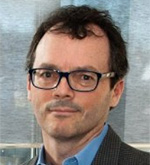
|
Randy Julian, PhD |
Poster Judging on See Details @ See Details
|
|
|
Randy Julian is CEO, President, and Founder of Indigo BioAutomation located in Indianapolis, Indiana. Randy earned a Ph.D. in Chemistry from Purdue University in 1993 and then worked in Discovery Chemistry at Eli Lilly for 14 years. Randy founded Indigo based on informatics technology developed in his research group. Dr. Julian led Indigo from its founding to profitability, building a world class management, engineering and research team to commercialize laboratory data analysis software. Dr. Julian is a frequent speaker in the mass spectrometry community and teaches short courses in statistics and data analysis. Randy is the past Chairman of the Human Proteome Organization’s Proteomics Standards Initiative Steering Group where he coauthored two international standards for analytical data. He was also the chairman of the ASTM committee on analytical data standards. Dr. Julian also maintains an active research relationship with the faculty at Purdue University where he is an Adjunct Professor of Chemistry. |
|||
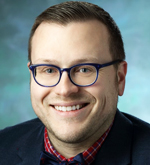
|
Mark Marzinke, PhD |
Office Hours 1 on Wednesday @ 16:15
|
|
| Dr. Marzinke is Associate Professor of Pathology and Medicine in the Johns Hopkins University School of Medicine. He is the Director of Preanalytics and the General Chemistry Laboratory in the Johns Hopkins Hospital Core Laboratories and the Director of the Clinical Pharmacology Analytical Laboratory in the Division of Clinical Pharmacology. He is Co-Director of the HIV Prevention Trials Network (HPTN) Laboratory Center (LC) and Core leader in the Johns Hopkins Center for AIDS Research. Dr. Marzinke currently sits on the Board of Editors for Clinical Laboratory News, and is on the editorial board for the Journal of Applied Laboratory Medicine. Dr. Marzinke received his Ph.D. in Biochemistry from the University of Wisconsin-Madison, followed by a post-doctoral fellowship in Clinical Chemistry at the Johns Hopkins University School of Medicine. Dr. Marzinke is board certified in Clinical Chemistry by the American Board of Clinical Chemistry. His primary research interests are in the areas of antiretroviral pharmacology, precision medicine, mass spectrometry, and laboratory automation. He is a principal investigator or co-investigator on several NIH-funded grants. | |||
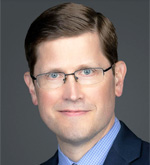
|
Steve Master, MD, PhD, FAACC |
Poster Judging on See Details @ See Details
|
|
| Stephen Master received his undergraduate degree in Molecular Biology from Princeton University, and subsequently obtained his MD and PhD from the University of Pennsylvania School of Medicine. After residency in Clinical Pathology at Penn, he stayed on as a faculty member with a research focus in mass spectrometry-based proteomics as well as extensive course development experience in bioinformatics. He is currently Associate Professor of Pathology and Laboratory Medicine at Children’s Hospital of Philadelphia. One of his current interests is in the applications of bioinformatics and machine learning for the development of clinical laboratory assays. He would play with R for fun even if he weren’t getting paid, but he would appreciate it if you didn’t tell that to his department chair. | |||
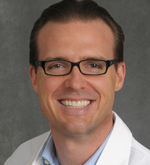
|
Adam Rosebrock, PhD |
Poster Judging on See Details @ See Details
|
|
| Dr. Adam Rosebrock comes to clinical mass spectrometry from the bench-science world of metabolomics. The Rosebrock lab uses a combination of genetics, biochemistry, and analytical chemistry (including mass spectrometry) to understand genetic regulation of metabolic phenotypes. As a tool-builder at heart, Adam's lab actively develops new methods and approaches for small-molecule chromatographic separation and MS data analysis. As an educator, Adam is always happy to discuss practical and theoretical aspects from biology through instrument design in the exhibit hall or fireside. | |||
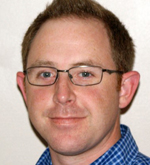
|
Chris Shuford, PhD |
Office Hours 1 on Wednesday @ 16:15
|
|
|
Chris Shuford, Ph.D., is Associate Vice President and Technical Director for research and development at Laboratory Corporation of America in Burlington, North Carolina. Chris received his B.S. in Chemistry & Physics at Longwood University and obtained his Ph.D. in Bioanalytical Chemistry from North Carolina State University under the tutelage of Professor David Muddiman, where his research focused on applications of nano-flow chromatography for multiplexed peptide quantification using protein cleavage coupled with isotope dilution mass spectrometry (PC-IDMS). In 2012, Chris joined LabCorp’s research and development team where his efforts have focused on development of high-flow chromatographic methods (>1 mL/min) for multiplexed and single protein assays for clinical diagnostics. |
|||
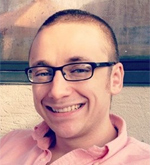
|
Will Slade, PhD |
Poster Judging on See Details @ See Details Booth Tours on Tuesday @ 18:00 Poster Tours 1 on Wednesday @ 14:15 Office Hours 1 on Wednesday @ 16:15 Poster Tours 2 on Thursday @ 10:15
|
|
| William Slade, PhD did his undergraduate degree in Biology from Concord University with a focus on Recombinant Gene Technology. He completed a PhD in Biological Sciences at Virginia Tech with a focus on Biological Mass Spectrometry before postdoctoral work at the University of North Carolina at Chapel Hill in the Analytical Chemistry department. He is currently a Researcher in the Mass Spectrometry Research and Development group at Laboratory Corporation of America Holdings in Burlington, North Carolina. His interests include clinical mass spectrometry and informatics. | |||
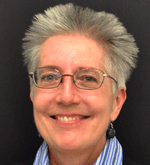
|
Judy Stone, PhD |
Poster Judging on See Details @ See Details Booth Tours on Tuesday @ 18:00
|
|
|
Judy will lead a Booth Tour for LC-MS 101 short course attendees & all other interested parties. This tour will highlight and build on discussions from the course. Judy Stone, MT (ASCP), PhD, DABCC has worked with LC-MS in diagnostic laboratories since 1999. Her clinical practice involved small molecule method development, instrument to instrument and instrument to LIS interfacing, LC-MS automation, monitoring quality of LC-MS methods in production and staff training for clinical LC-MSMS. She served as faculty chair for the 2009 AACC online certificate program “Using Mass Spectrometry in the Clinical Laboratory”, as a scientific committee member for the MSACL Practical Training track, and is editor-in-chief for the AACC Clinical Laboratory News quarterly feature series on Clinical LC-MS. She enjoys documenting and presenting esoteric as well as absurdly common LC-MS problems in creative ways in order to help trainees learn troubleshooting (and avoid repeating her mistakes). |
|||
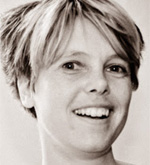
|
Irene Van den Broek, PhD |
Poster Judging on See Details @ See Details Booth Tours on Tuesday @ 18:00 Poster Tours 1 on Wednesday @ 14:15
|
|
| Irene van den Broek is the lead clinical R&D of the Cedars-Sinai Precision Biomarker Laboratories at Cedars-Sinai Medical Center in Los Angeles. Dr. van den Broek received her PhD in LC-MS/MS method development for peptide therapeutics from the Utrecht University, followed by a post-doctoral fellowship in LC-MS/MS for clinical protein assays at the Leiden University Medical Center, both in the Netherlands. Her primary research interests are clinical protein mass spectrometry, (automation of) protein sample preparation, and applications of clinical protein mass spectrometry in remote monitoring and precision medicine. At the Precision Biomarker Laboratories, a newly-founded clinical-contract research laboratory consortium, she leads the research, development and validation of small and large molecule LC-MS/MS assays for use in the routine clinical laboratory. | |||
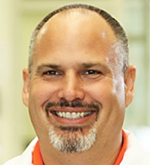
|
Jarrad Wagner, PhD |
Booth Tours on Tuesday @ 18:00
|
|
| Dr. Jarrad Wagner is a Professor of Forensic Sciences at Oklahoma State University Center for Health Sciences (OSU CHS), where he is the Director of the Forensic Toxicology and Trace Laboratory. He works primarily with triple quadrupole LC/MS/MS instruments and supporting forensic and clinical laboratories in method development, validation and training. Dr. Wagner is a Fellow of the American Board of Forensic Toxicology and also a Fellow in the Criminalistics section of the American Academy of Forensic Sciences. He serves as a member of the AAFS/SOFT Drugs and Driving Committee, the Drug Facilitated Crimes committee, and the Oral Fluid committee. He is also a member of the Alcohol, Drugs and Impairment Division of the National Safety Council and Vice Chair of the Oklahoma State Board of Tests for Alcohol and Drug Influence. In addition to his current role as faculty and Clinical Lab Director, he has also formerly been a chemist, a forensic scientist and reserve police officer. | |||
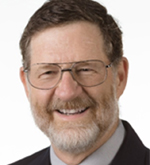
|
Richard Yost, PhD |
Poster Judging on See Details @ See Details Office Hours 1 on Wednesday @ 16:15
|
|
|
Dr. Yost is the University Professor and Head of Analytical Chemistry at the University of Florida. He is recognized internationally as a leader in the field of analytical chemistry, particularly tandem mass spectrometry (MS/MS). Dr. Yost received his BS degree in Chemistry in 1974 from the University of Arizona, having performed undergraduate research in chromatography with Professor Mike Burke and his PhD degree in Analytical Chemistry in 1979 from Michigan State University, having performed graduate research with Professor Chris Enke. He then joined the faculty of the University of Florida. Dr. Yost's professional activities have focused on research and teaching in analytical mass spectrometry, particularly tandem mass spectrometry (MS/MS). His group’s research has reflected a unique balance between instrumentation development, fundamental studies, and applications in analytical chemistry. His group has led in the application of novel mass spectrometric methods and techniques to areas such as metabolomics, clinical, biomedical, pharmaceutical, environmental, petrochemical, and forensic chemistry. Dr. Yost has supervised the research of well over 100 graduate students during the past 39 years, graduating over 90 PhDs from his group. He has served as PI or Co-PI on grants and contracts totaling over $60M of funding. Research in the group has led to over 210 publications and 25 patents. He still loves teaching undergraduates and graduates in the classroom each semester. Dr. Yost recently completed terms on the Florida Board of Governors (Regents) and the University of Florida Board of Trustees. He is director of the Southeast Center for Integrated Metabolomics (SECIM) and of NIH’s Metabolomics Consortium Coordinating Center (M3C). He is also a Professor of Pathology at both the University of Florida and the University of Utah/ARUP. His research has been recognized with the 1993 ASMS Award for Distinguished Contribution in Mass Spectrometry and the 2018 MSACL Award for Distinguished Contribution to Clinical Mass Spectrometry. In 2019 he received the Distinguished Eagle Scout Award and was named the Florida Academy of Sciences Medalist. He currently serves as the President of the American Society for Mass Spectrometry (ASMS). |
|||




